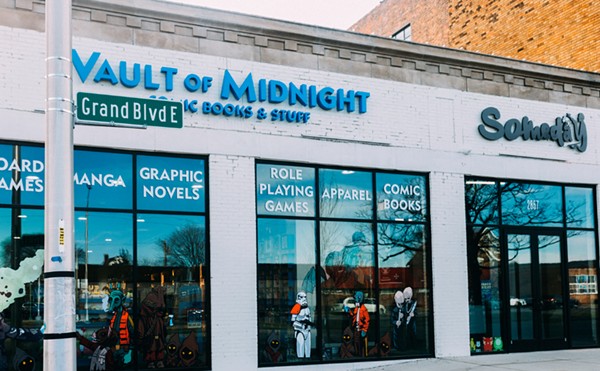Ordinarily a nonfiction book’s dustcover is a low-key affair. Not this one. Even though he’s compiled this collection of commentaries from leading African-Americans, BET personality Tavis Smiley helps himself to the whole back cover. Is this a serious book on a serious issue? Or a star vehicle for Tavis Smiley? Lord knows it’s hard enough to sell books these days, so perhaps the publicity department thought it needed to go that extra mile of marketability.
Once inside, we get a mixed bag of the trite and true. Smiley himself delivers 10 challenges to the black community, most of which are tinged with genteel black power sentiments such as buy Fubu, stop dogging women and read a book. Tyra Banks offers a poem that is truly awful, even for a ditzy mannequin: Love each other/Support each other/Uplift each other/Stop “player hating” each other/Can’t we all just — well, you know ... Ugh!
Sinbad delivers, with his consummate loud-mouthed cheer, four pages of well-intentioned clichés about respect, humility and diversity. Deion Sanders, he of velvet hands and soggy do-rag, has one solution for what ails black America: Christ.
Fortuitously, the entertainers are not left to fiddle while the plantation burns. There is the transcript of a symposium, Advocacy in the Next Millennium, full of spirited, erudite discussion by big names in the black community. At least half a dozen contributors address the digital divide. Stanley Crouch and Farai Chideya make impassioned arguments for education and more education.
In an essay titled “Updating Our Battles,” Crouch is particularly compelling in his disdain for the anti-intellectualism that has turned many black youths into fodder for the prison-industrial complex:
Studies of Black attitudes toward learning have been telling us of these problems for fifteen years. Tests have made it obvious that problems have nothing to do with learning capacity. By rejecting supposed “white values” and “white standards” in pursuit of “keeping it real,” far too many kids are not asserting the Black tradition of excellence as the antidote to stereotypes and best defense against life’s unfairness.
Running through the book is a conflict never more contentious or relevant — to integrate or not to integrate. At one time blacks were considered only three-fifths of a person in the Constitution; at last they’ve made it, in theory, to full citizenship. But if the government won’t provide the funding and attendant legislation to do a proper job of transforming that theory into practice, why should black America put itself on the line for some withered ideal?
Black Americans were cut off from Africa by slavery, robbed of their roots, robbed of their ability to remember those roots, even if they today can get on a plane and visit Dakar or Nairobi. They are the true Americans, without hyphens.
Cornel West, always the best-pitched voice in the house, lays it out: Where there is no vision, the people perish. And part of the problem today is that our vision of freedom has become narrow and truncated. If you go back to the Black freedom struggle, freedom was about Black self-respect, self-love, and control over our destiny. That’s a fundamental ideal. These days freedom is much more [about] personal security, material prosperity, and trying to “get over.” That’s not freedom. … That’s too narrow and there’ll never be enough spaces at the top for all Negroes to get over. Never. You got to have something broader. And that’s true for brothers and sisters of whatever color …
What will make black America better could make all of America better ... if only all of America lets it happen.
Timothy Dugdale writes about books and visual culture for the Metro Times. E-mail him at [email protected].





